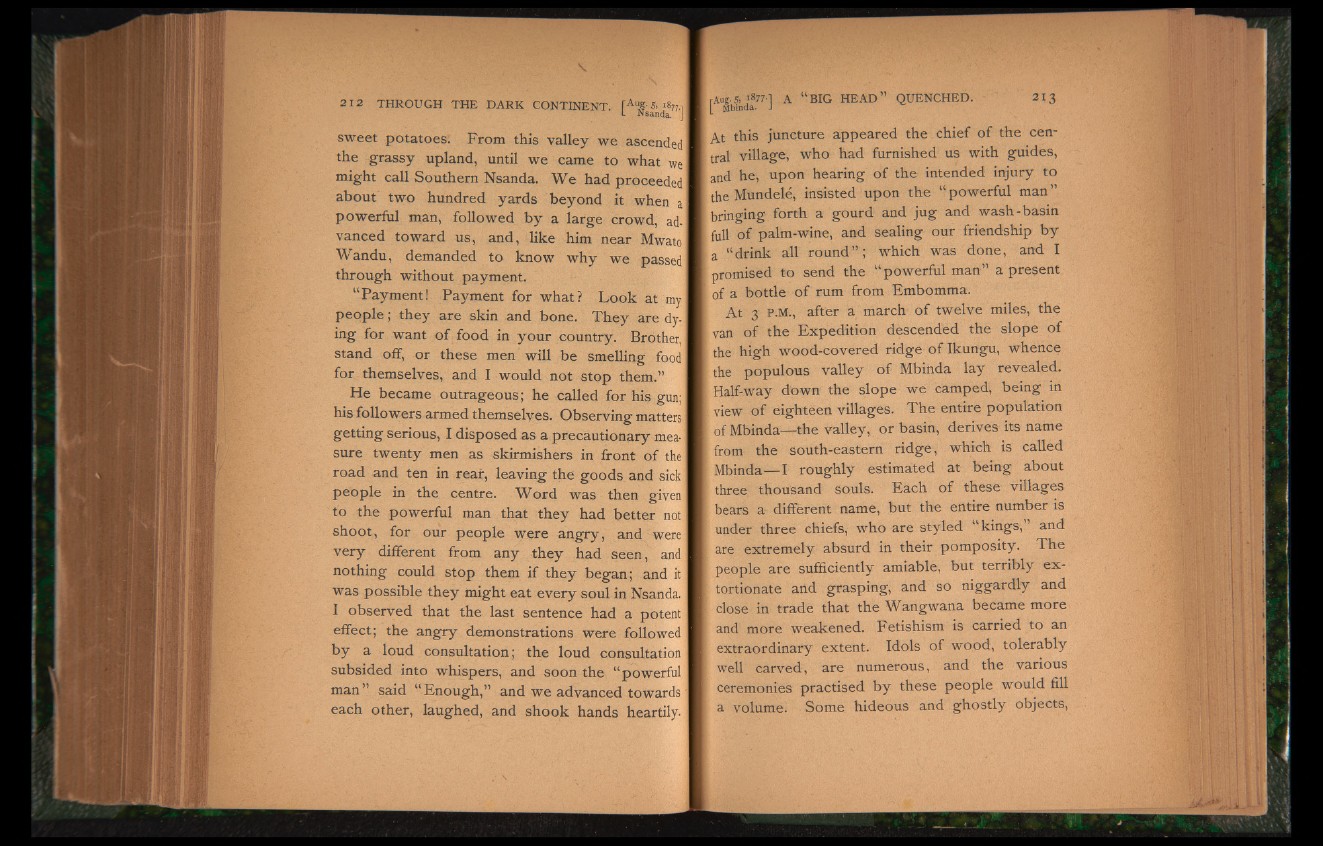
sweet potatoes. From this valley we ascended!
the grassy upland, until we came to what we'
might call Southern Nsanda. We had proceeded
about two hundred yards beyond it when a
powerful man, followed by a large crowd, ad-!
vanced toward us, and, like him near Mwato
Wrandu, demanded to know why we passed
through without payment.
“Payment! Payment for what? Look at my!
people; they are skin and bone. They are dy-1
ing for want of food in your country. Brother, I
stand off, or these men will be smelling food
for themselves, and I would not stop them.”
He became outrageous; he called for his gun;
his followers armed themselves. Observing matters
getting serious, I disposed as a precautionary measure
twenty men as skirmishers in front of the
road and ten in rear, leaving the goods and sick ]
people in the centre. Word was then given)
to the powerful man that they had better not |
shoot, for our people were angry, and were
very different from any they had seen, and
nothing could stop them if they began; and it
was possible they might eat every soul in Nsanda.
I observed that the last sentence had a potent
effect; the angry demonstrations were followed
by a loud consultation; the loud consultation
subsided into whispers, and soon the “powerful
man” said “ Enough,” and we advanced towards
each other, laughed, and shook hands heartily.
rAug-5, i877-1 A “ BIG H E A D ” Q U EN CH ED . 2 1 3
[ Mbinda. J
At this juncture appeared the chief of the central
village, who had furnished us with guides,
and he, upon hearing of the intended injury to
t h e Mundele, insisted upon the “ powerful man”
bringing forth a gourd and jug and wash-basin
full of palm-wine, and sealing our friendship by
a “drink all round” ; which was done, and I
promised to send the “ powerful man” a present
of a bottle of rum from Embomma.
At 3 P.M ., after a march of twelve miles, the
van of the Expedition descended the slope of
the high wood-covered ridge of Ikungu, whence
the populous valley of Mbinda lay revealed.
Half-way down the slope we camped, being in
view of eighteen villages. The entire population
of Mbinda— the valley, or basin, derives its name
from the south-eastern ridge, which is called
Mbinda— I roughly estimated at being about
three thousand souls. Each of these villages
bears a different name, but the entire number is
under three chiefs, who are styled “ kings,” and
are extremely absurd in their pomposity. The
people are sufficiently amiable, but terribly extortionate
and grasping, and so niggardly and
close in trade that the Wangwana became more
and more weakened. Fetishism is carried to an
extraordinary extent. Idols of wood, tolerably
well carved, are numerous, and the various
ceremonies practised by these people would fill
a volume. Some hideous and ghostly objects,